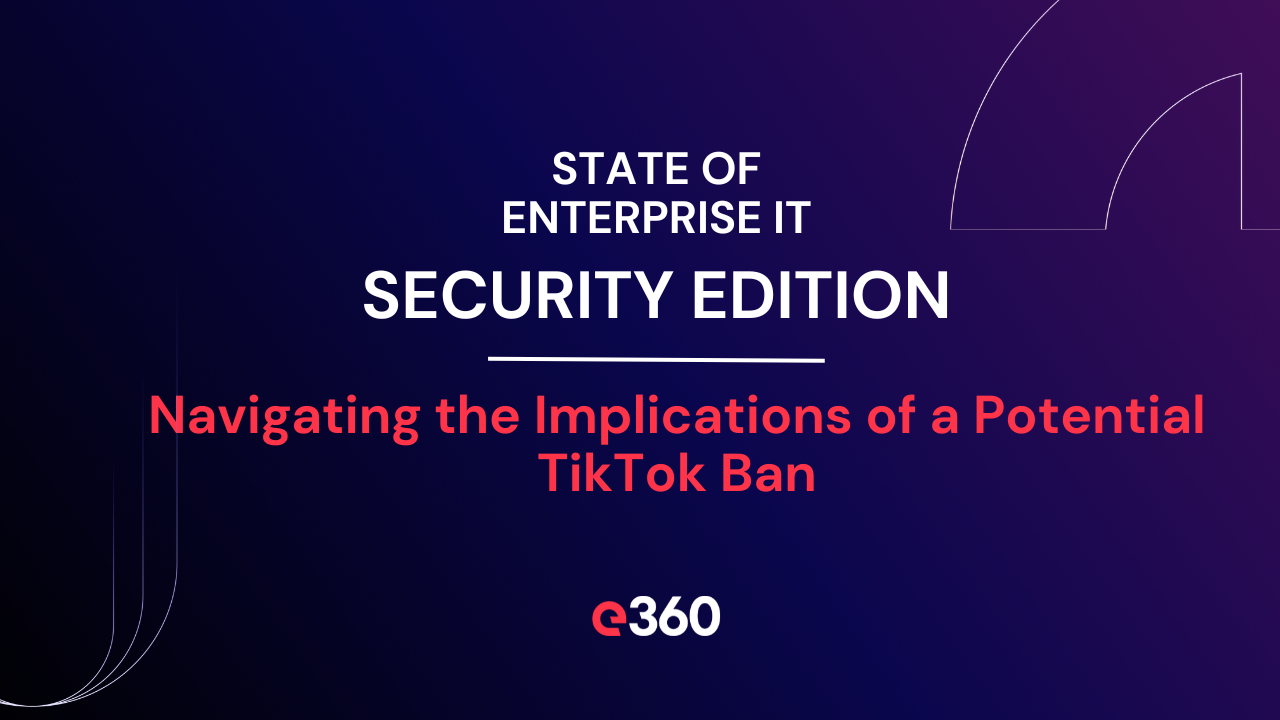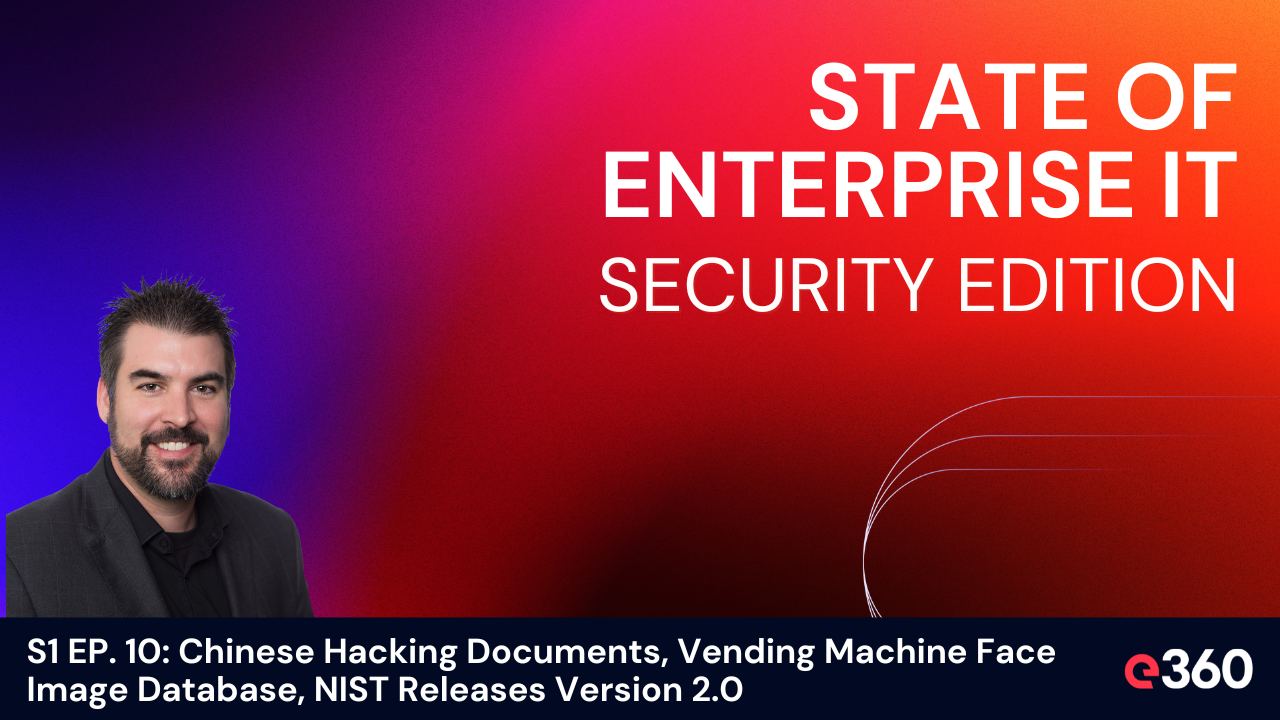The digital landscape is buzzing with the latest legislative developments from the U.S. House of Representatives. A decision that pivots on the axis of data privacy and national security concerns has cast a spotlight on one of the most popular social media platforms of our time: TikTok. Brad Bussie, the Chief Information Security Officer at e360, provides a detailed exposition on the matter in the 12th episode of the State of Enterprise IT Security Edition.
"The House of Representatives, they passed a bill on Wednesday that requires TikTok owner ByteDance to sell the social media platform or face a total ban in the United States," Brad reports, outlining the immediate stakes of the bill. The intensity of the House's stance is evident in the voting outcome Brad describes: "the vote in the House was 352 to 65 against."
He continues to dissect the situation, shedding light on the tactical errors that may have exacerbated TikTok's predicament: "TikTok made a tactical error by forcing a pop-up that they said was only distributed to TikTok users over the age of 18." This misstep, as Brad explains, led to a bombardment of Congress with calls, presumably from an aggravated younger user base, which in turn, "had an adverse effect" on the proceedings.
In this episode, Brad had touched upon the crux of the matter: "It's all about the allegations that the China-based company could collect sensitive user data." The ongoing tug-of-war between TikTok's assurances and the House's skepticism resonates through Brad's words: "TikTok, they still keep saying that they haven't shared any data coming from the U.S. with China, but they can't prove it."
The journey of the bill to the Senate brings about a cloud of uncertainty. Brad ponders the constitutional implications of such a targeted ban: "There's already a couple of senators that have called out, how constitutional is this, really, to name a specific company and ban them?"
In a digital era where personal data is often commoditized, Brad encapsulates the broader conundrum facing users and policymakers alike: "In the end, we're still faced with people choosing to put their information up for the highest bidder, and some of us just choose not to participate."
The episode underscores the delicate balance between safeguarding national interests and fostering a free, open digital environment. As the narrative around TikTok's future unfolds, technology leaders and consumers will be keenly observing the ripple effects of these legislative efforts on global IT security and data privacy practices.
Episode eleven of the "State of Enterprise IT Security" podcast is available now. For more insights into how technology shapes our world, stay tuned to our blog for the latest in enterprise IT security and beyond.


